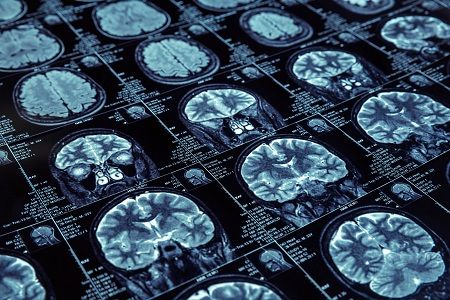Article
Atrial Fibrillation More Closely Associated with Brain Injury
Author(s):
Investigators have found a pair of increased biomarker levels indicate patients with AF are at a greater risk of neurodegeneration.

Brain injury—and, as a result, neurodegenerative cognitive decline—could be closely associated with instances of atrial fibrillation (AF).
In a new study presented at the 2018 American Heart Association (AHA) Scientific Sessions in Chicago, IL, this week, investigators from the Intermountain Medical Center Heart Institute in Salt Lake City, led by Oxana S. Galenko, PhD, assessed the ways in which patients with AF experience altered brain perfusion.
Perfusions, they noted, can lead to brain injury and disruption of the brain barrier through various pathways—in some cases permeating the neuro-specific molecules in the bloodstream. In their retrospective analysis of 246 individuals’ plasma samples, investigators assessed the levels of a quartet of biomarkers associated with brain injury: glial fibrillary acidic protein (GFAP), S100 calcium-binding protein B (S100B), stress response marker growth/differentiation factor 15 (GDF 15), and Tau protein.
It was the previously held belief of the clinical community that patients with AF experience chronic, subclinical cerebral injuries, Galenko said in a statement.
“It becomes absolutely critical to identify the early markers of this injury and help these patients who are at higher risk of having subsequent neurodegenerative problems, such as cognitive decline and dementia,” she explained.
AF, an irregular and sometimes rapid heartbeat that can lead to cardiovascular issues including blood clots, stroke, and heart failure, affects between 2.7 — 6.1 million Americans, according to the US Centers for Disease Control and Prevention.
Of the 246 individuals, 48 (19.5%) served as non-AF control patients while the rest had been previously diagnosed with AF. Biomarker levels and their association with AF status were assessed via patient plasma through the Wilxocon Sign Rank test, as well as multivariate logistic modeling. Investigators adjusted for patient age and gender.
Among the 2 patient populations, those with AF tended to be older and with a lesser likelihood of CVD in their family history than control patients. That said, GFAP, GDF15, and Tau levels were significantly elevated in cases of AF, in univariate analyses (P < .0001).
With consideration to multivariate adjustments for baseline patient differences, GFAP and Tau levels remained significantly greater in the AF patient group.
Investigators concluded the 2 proven elevated biomarkers may prove to be useful metrics of both acute and chronic brain injury in patients with AF. Galenko called for a similar analysis performed across a larger patient pool—with hope for improved diagnoses possibly hanging on a blood test that would be capable of distinguishing the biomarker levels in patients with AF.
"At this stage, we're at the very beginning of studying this link, but it's a step forward toward addressing the problem," Galenko said.
The study, "Circulating Biomarkers of Cerebral Injury Are Increased in Atrial Fibrillation Patients," was presented at AHA 2018 this week.
Related Coverage >>>
Steven Nissen, MD: Takeaways from the Updated Cholesterol Guidelines
Cardiac Arrest Induced PTSD Linked to Increased Complication and Death





